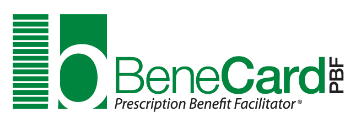Over the last decade, there’s been growing scrutiny and public clamor surrounding the rising prices of life-saving insulin medicine. Recent changes to federal and state laws as well as Medicare and Medicaid policies has pushed the discussion to the tipping point and pharmaceutical companies are feeling pressure to reduce prices.
Now, the big three insulin makers—Novo Nodisk, Sanofi, and Eli Lilly and Company—have all announced dramatic price cuts to their insulin-related products.
So why has this happened and what will these price changes mean for people who depend on insulin? Let’s review.
First, What is Insulin?
Insulin is a hormone produced by the pancreas and plays an essential role in regulating the body’s metabolism, specifically blood sugar levels. In other words, Insulin helps your body convert sugar into energy. If the pancreas is unable to produce or release the insulin needed to regulate glucose levels, a person will likely develop diabetes.
There are three distinct types of diabetes:
- Diabetes type 1 – Type 1 diabetes typically develops in childhood or young adulthood. Patients produce little to no insulin and require regular insulin injections to manage blood sugar levels.
- Diabetes type 2 – The most common form of diabetes, accounting for more than 90% of all cases. Patients become resistant to insulin and as a result, their body fails to respond properly to insulin. This may require insulin in addition to other diabetes medications and lifestyle changes.
- Gestational diabetes – Occurs during pregnancy but typically goes away after the baby is born. Women with gestational diabetes are at higher risk of developing type 2 diabetes.
Modern medicine has developed an array of injectable insulins people with diabetes can use to manage their condition and sugar levels. These include:
- Rapid-acting insulin – Starts working within 5-20 minutes and keeps working for 3-5 hours.
- Regular insulin – Starts working about 30-45 minutes after injection and lasts 5-8 hours.
- Intermediate-acting insulin – Starts working about 2 hours after injection, is most effective between 4-12 hours and wears off in 14-24 hours.
- Long-acting insulin – Starts working an hour after injection, peaks between 3-14 hours after, and lasts up to 24 hours.
- Ultra long-acting insulin – Starts working within 6 hours of injection, does not peak, and can last up to two days.
Average Insulin Prices
Between 2001 to 2022, the average price of insulin rapidly increased year after year as drug manufacturers raised prices. For instance, according to the United States Senate Finance Committee, Examining the Factors Driving the Rising Cost of a Century-Old Drug:
In 2002 Lantus WAC cost less than $50 and by 2014 it had skyrocketed to $303, and by 2019 it was listed at $404.
- Between 2001 to 2012 Sanofi increased list price by as much as 18% annually, raising prices from $34 to $131. In the next two years, that price nearly doubled to $248.
- Levemir Flex Touch increased from $303 in May 2014 to approximately $462 in January 2019, representing an increase of $159 (or 52%) in a little more than five years.
- While profit motivations were certainly a factor in price increases, they weren’t the only ones. As USA Today notes:
- “The drug price increases coincided with lucrative rebate demands from insurers and pharmacy benefit managers, which are drug-pricing middlemen that command steep rebates in exchange for favorable placement on private insurance plan drug formularies.”
Recent Price Drops
The recent “Inflation Reduction Act” set a cap on out-of-pocket insulin costs at $35 for seniors on Medicare. Although this price cap was limited to seniors, it created market conditions and pressures for the big three insulin makers to make pricing changes across the board.
In the beginning of March, Eli Lilly and Company was the first of the major insulin makers to announce sweeping price cuts for their life-saving medications, reducing prices by 70% and expanding its Insulin Value Program to cap out-of-pocket costs at $35 or less per month.
According to a Lily press release, they planned to take the following actions:
- Cut the list price of its non-branded insulin, Insulin Lispro Injection 100 units/mL, to $25 a vial.
- Cut the list price of Humalog® (insulin lispro injection) 100 units/mL and Humulin® (insulin human) injection 100 units/mL by 70%
- Launch RezvoglarTM (insulin glargine-aglr) injection, a basal insulin that is biosimilar to, and interchangeable with, Lantus® (insulin glargine) injection, for $92 per five pack of KwikPens®, a 78% discount to Lantus
Soon after this announcement, Novo Nordisk followed Lily’s lead to reduce the list price of its insulins by up to 75%. Per NBC news:
“NovoLog and NovoLog Mix 70/30 will cost $72.34 for a single vial and $139.71 for a pen, a 75% decrease in price. And the price of Levemir, a long-acting insulin, will be reduced by 65% to $107.85 per vial and $161.77 per pen, the company said. Novolin will see a similar price reduction, at $48.20 per vial and $91.09 per pen.”
Seeing the writing on the wall, Sanofi followed their lead, lowering the list price of Lantus by 78% and its short-acting insulin Apidra by 70%.
Insulin with BeneCard PBF
These announced price changes should be welcome news for patients who rely on these life-saving drugs. Now, for the first time in decades, prices are dropping, which is cause for celebration.
In the coming months, BeneCard PBF members should expect to enjoy even greater cost savings than they were previously. To learn more about these changes to insulin prices, contact us today.
Sources:
Cleveland Clinic. Insulin https://my.clevelandclinic.org/health/articles/22601-insulin
USA Today. 3 major insulin makers have now slashed the price of the life-saving drug. Here’s why. https://www.usatoday.com/story/news/health/2023/03/16/insulin-prices-explained-eli-lily-novo-nordisk-sanofi/11475015002/
Lily. Lilly Cuts Insulin Prices by 70% and Caps Patient Insulin Out-of-Pocket Costs at $35 Per Month https://investor.lilly.com/news-releases/news-release-details/lilly-cuts-insulin-prices-70-and-caps-patient-insulin-out-pocket
NBC News. Novo Nordisk to lower list price of some of its insulin by up to 75% in the U.S. https://www.nbcnews.com/health/health-news/novo-nordisk-lower-list-price-insulin-rcna74836

